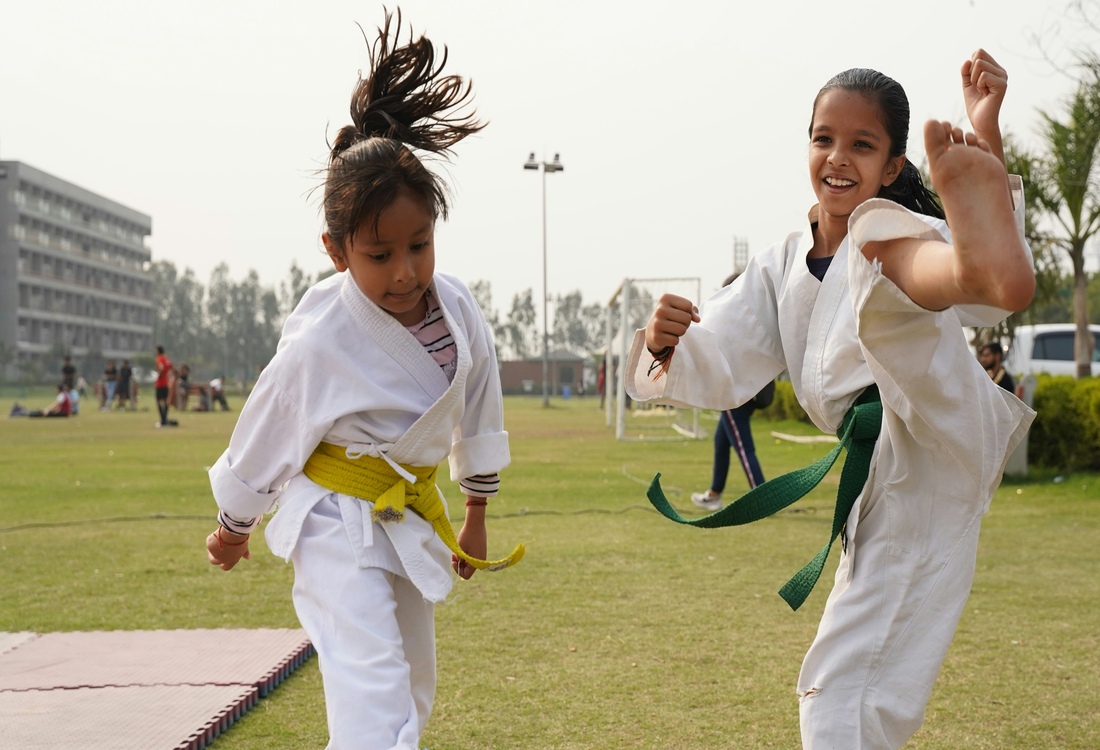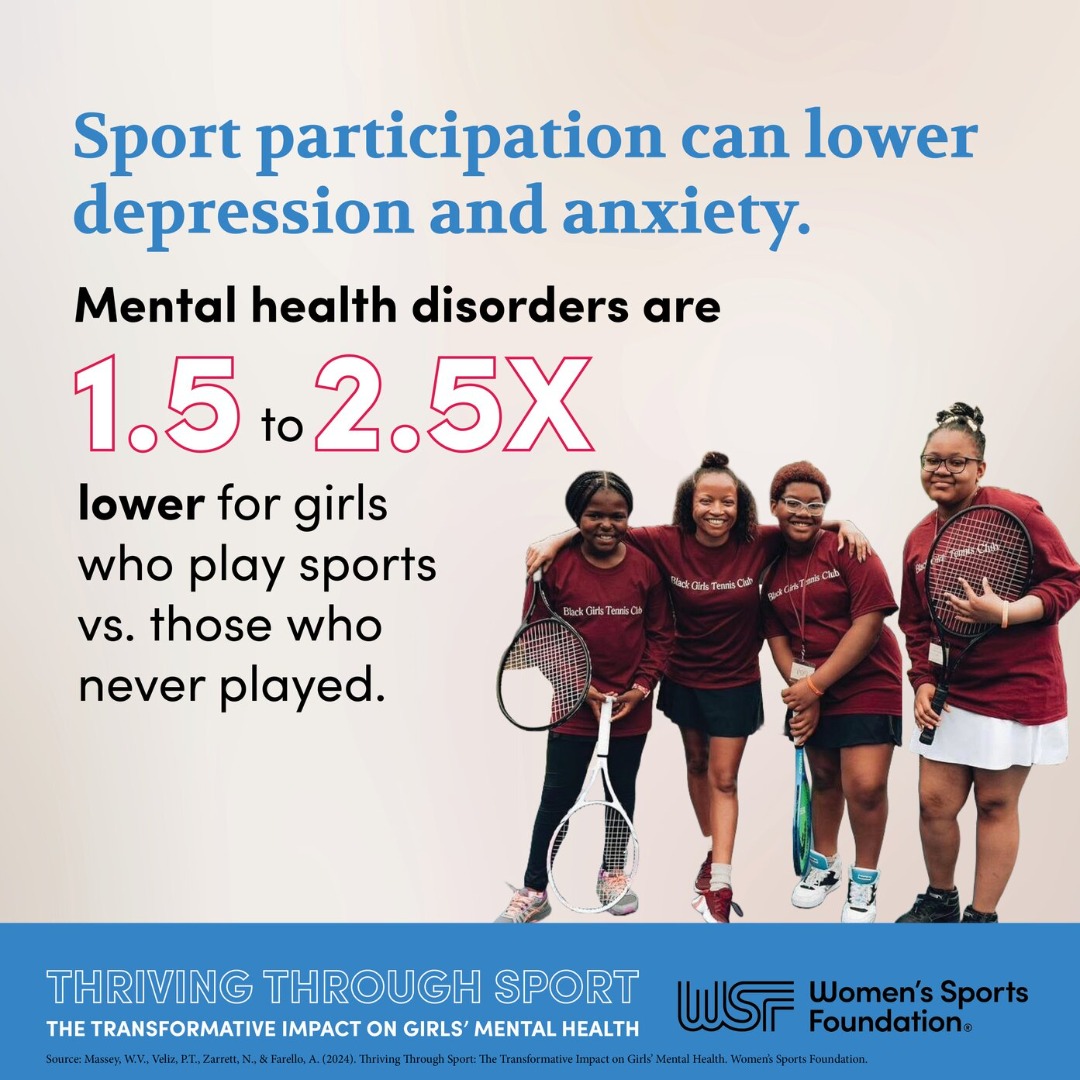
WSF Report Examines Sports' Impact On Girls' Mental Health
May 3, 2024
With a youth mental health crisis continuing to sweep across the United States, recent research from the Women’s Sports Foundation (WSF) is showing the transformative power sports holds to fortify the mental health and well-being of young girls. As anxiety and depression rates among girls remains disproportionately high, the study underscores the pivotal role sports can play in alleviating symptoms of both, while offering a sense of purpose and fulfillment.
In 2019, one in three high school students in the US admitted to grappling with persistent feelings of sadness or hopelessness, according to the 2021 Surgeon General’s Advisory on youth mental health. This figure marked a staggering 40% increase from 2009. Teen girls in particular are bearing the brunt of the crisis, with more than half having reported these feelings in 2023 according to the CDC. Alarmingly, suicide remains the second leading cause of death among youth aged 10 to 14 and young adults age 20-34, with one-third of teen girls reportedly having seriously considered suicide in 2021.
Amid these staggering statistics, sport in supportive and inclusive settings stands out for its ability to help girls not just survive but thrive. The recently published WSF study , entitled "Thriving Through Sport: The Transformative Impact on Girls' Mental Health," offers new data and actionable recommendations aimed at continuing the fight for greater equity in sports given its positive benefits on mental health. Fifty years after the passage of the landmark Title IX sex discrimination law, girls still lag behind their male peers in sports participation. Approximately 40% of teen girls are not actively participating in sport, according to the WSF. In addition, $1.13 million more is invested in boys’ sport opportunities than girls’, according to National Federation of State High School Associations.

The report found that sports participation can actually lower depression and anxiety. In fact, girls who play sports experience 1.5 to 2.5 times fewer mental health disorders than girls who never played sports, according to the research. For girls who play sports, only 17% experience moderate to high levels of depression compared to 29% for girls who never played. Beyond these direct health benefits, sports were also found to provide promotive and protective benefits, including 1.5 times higher scores for peer relationships and 1.5 times higher reported levels of meaning and purpose. These advantages extend across races, family income, parent education, sexual identity and disability status.
"So many young people are struggling with mental health issues. It's a prominent public health concern," said Dr. Claudia Reardon, a Professor in the Department of Psychiatry at the University of Wisconsin School of Medicine and Public Health. "This new WSF research shows that sports can play a powerful role in supporting girls' mental well-being. Beyond physical activity, when girls play, they build relationships with their peers, learn to work as a team, and so much more."
This sentiment was echoed by WSF CEO, Danette Leighton. "The ongoing mental health crisis in society - across all ages, and especially for youth - is a profound challenge that calls all of us to take action. Our data provides hope that sports, when done right, gives girls a tool for supporting their mental health. When we help girls thrive, we all win," she said. The Thriving Through Sports research is just the latest data from the Foundation which has historically used evidence-based research, advocacy and community programming to help women excel in sports. WSF was founded in 1974 as one of the first organizations to promote the powerful connection between sports access, equity and society.
Given the positive impacts of sports on mental health, Leighton said the WSF is focused more than ever on improving girls’ access to sports. “Equitable access is especially important given this new research, which shows that mental health benefits of sport can be a great equalizer. When girls play in sport environments that prioritize wellbeing, they are able to play, compete and lead — in sport and in life,” she wrote in the report.
Click here to read the complete report.